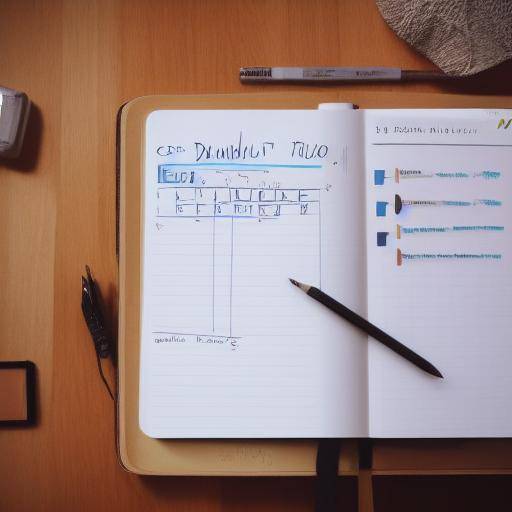
Today, the daily routine can be agitated and stressful. The demand for balance between work, family life and personal responsibilities can physically and emotionally exhaust us. It is crucial to establish a daily self-care routine to maintain good mental and physical health. In this guide, we will explore the importance of self-care, how to establish an effective routine and best practices to improve personal well-being and productivity.
What is the self-care routine?
The self-care routine refers to the activities we perform regularly to maintain and improve our physical, mental and emotional health. These activities may include physical exercises, adequate rest, balanced diet, stress management, gratitude practice, among others. Establishing a self-care routine allows you to recharge energies, reduce stress, improve concentration and increase productivity.
Self-care benefits for personal well-being and productivity
Self-care has a number of significant benefits for personal well-being and productivity. By dedicating time to caring for ourselves, we can experience an improvement in our physical and emotional health, which in turn contributes to greater efficiency and concentration in our daily work and activities.
Personal welfare
The regular practice of self-care fosters self-esteem, autonomy and sense of control over our lives. It contributes to a more positive attitude, reducing anxiety and emotional exhaustion. Personal well-being is strengthened, promoting a sense of satisfaction and fullness in daily life.
Productivity
A balanced mental state is fundamental to productivity. Self-care allows us to recharge energies, enhance concentration and improve decision-making. In addition, it reduces labor absenteeism and promotes a more positive working environment. With a clear and balanced mind, our productivity is significantly increased.
How to establish an effective self-care routine
Identify your needs
The first step to establish a self-care routine is to identify your individual needs. Take a moment to reflect on the activities that give you well-being and happiness. Do you need more rest time? Would you benefit from the practice of meditation or yoga? Know your needs to plan a custom routine.
Plan your self-care routine
Once your needs are identified, it is time to plan an effective self-care routine. Set specific schedules to perform your self-care activities, either at the beginning or end of the day. Be sure to include a variety of activities that address the physical, mental and emotional aspects of your well-being.
Promise yourself with your routine
The commitment is essential to establish a lasting self-care routine. Make sure you book time for your self-care activities and treat them as a priority on your day to day. Keep a constant focus and make the necessary adjustments to ensure that these activities are an integral part of your daily life.
Test and adjust your routine
Self-care is not static; it must adapt as our needs change. Regularly check your self-care routine and adjust activities as needed. Flexibility is important to maintain an effective long-term routine.
The importance of self-care routine in modern times
Modern life is marked by a constant demand for productivity and performance, which can lead to the neglect of self-care. The self-care routine takes relevance in this context, as it counters the stress, anxiety and exhaustion that are common in contemporary society. By prioritizing self-care, we are promoting a balanced lifestyle that has a positive impact on our physical and mental health.
Self-care routine and its impact on labour productivity
A fundamental aspect of self-care routine is its impact on labour productivity. Companies are increasingly recognizing the importance of promoting the well-being of their employees, as a healthy and balanced team tends to be more productive and creative. The implementation of self-care programmes in the working environment not only contributes to the satisfaction and retention of talent, but also improves the overall performance of the organization.
Examples of self-care routines
It is important to note that the self-care routine is unique to each individual, as it is based on personal needs and preferences. Here are some examples of self-care activities that can be part of a daily routine:
- Meditation and mindfulness: dedicating a few minutes a day to meditating helps reduce stress and improve mental clarity.
- Physical activity: performing physical exercise regularly is essential to maintaining physical and mental health.
- Balanced diet: a balanced diet provides the nutrients necessary for general well-being.
- Suitable rest: ensuring a repairing sleep is fundamental for the recovery of the body and mind.
- Quality time: dedicate time to activities that generate joy and well-being, such as hobbies or spend time with loved ones.
Final tips to incorporate the self-care routine
Incorporating an effective self-care routine can be a challenge in the midst of daily responsibilities, but it is essential for personal well-being and long-term productivity. Here are some final tips to facilitate this process:
- Keep consistency: the key to seeing results is to maintain consistency in the practice of your self-care routine.
- Flexibility: If you can't do your routine one day, don't get punished. Flexibility is key to maintaining a positive approach to self-care.
- Find support: share your self-care goals with friends or family to get emotional support and motivation.
- Celebrate the achievements: acknowledge and celebrate your achievements, however small, in relation to your self-care routine.
In conclusion, establishing and maintaining a daily self-care routine is an invaluable investment in our health and well-being. By prioritizing self-care, we not only improve our quality of life, but also promote our productivity and happiness in other aspects of our existence.
Frequently asked questions about self-care routine
1. What is the importance of establishing a daily self-care routine?
The daily self-care routine is essential to maintain a physical, mental and emotional balance. By dedicating time to caring for ourselves, we can improve our overall health and promote a more satisfying life.
2. What types of activities can be part of a self-care routine?
Self-care activities can range from meditation, physical exercise and balanced feeding, to the practice of hobbies that generate emotional well-being.
3. How can I find time for self-care in the midst of my daily responsibilities?
Self-care requires conscious planning and commitment to prioritize yourself. Identifying your needs and setting healthy boundaries is an important first step.
4. What is the impact of self-care on labour productivity?
Self-care has a significant impact on labour productivity, as it contributes to concentration, emotional balance and stress reduction, which in turn results in more effective performance in the workplace.
5. How long should I spend on my daily self-care routine?
Time dedicated to self-care can vary according to individual needs, but even a few minutes a day can make a remarkable difference in your well-being.
6. How can I adapt my self-care routine as my personal circumstances change?
Flexibility is essential in a self-care routine. As your personal circumstances change, it is important to reevaluate and adjust your self-care practices to ensure that they remain effective and satisfactory.
We hope that these responses have provided you with a clearer understanding of the importance and implementation of a daily self-care routine.
In conclusion, the incorporation of an effective self-care routine is essential for personal well-being and productivity in daily life. By prioritizing self-care, we take active measures to maintain a healthy balance in our lives, which in turn contributes to greater performance in all areas. Incorporating a self-care routine can be a challenge, but long-term benefits are worth spending time and effort.






















































